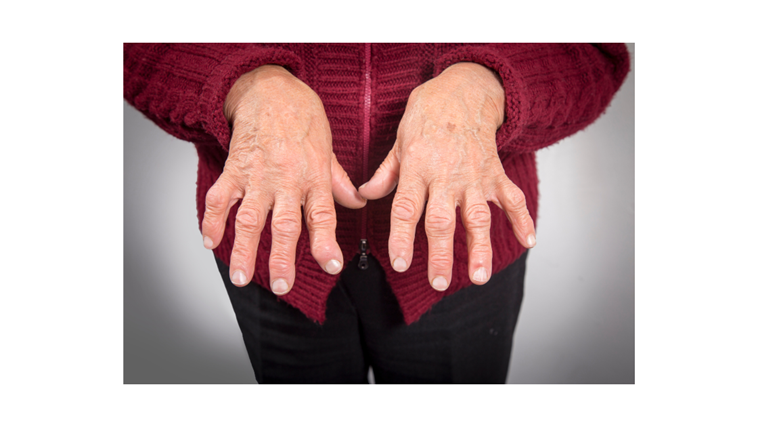Osteoarthritis Treatment in Overland Park: 10 New Things to Know
![]()
- Warfarin may increase hip or knee replacement risk.
Warfarin is often prescribed to prevent blood clots, especially in people with atrial fibrillation, but it may harm your joints. This is something you should know, especially if you have regular osteoarthritis treatment in Overland Park.
Warfarin reduces vitamin K, which helps blood clot. Vitamin K also helps bones and cartilage.
A control group of people who needed knee and hip replacements took warfarin. This is like other anti-clotting medications. However, atrial fibrillation is the reason for taking the medications but not having joint replacement surgery. After controlling the potential cofounders, warfarin users actually had 1.57 times the risk of knee or hip replacement surgery. This was different from other people who were using blood-clotting meds. The study also found that vitamin K levels can slow progression. This would change increase in need for osteoarthritis treatment in Overland Park. You can learn more about these findings if you click on the article of reference below.
This study suggests that vitamin K levels can slow osteoarthritis progression. Learn more about the findings.
![]()
- Knee steroid injections do not seem to accelerate knee replacement surgery.
Knee corticosteroid injections are common osteoarthritis pain treatments. However, research suggests that such injections may worsen OA disease progression. The studies’ patients had advanced knee OA, which increases the risk of disease progression, so their findings have been disputed.
New research suggests that steroid injections do not accelerate knee replacement. Two large studies looked at radiographic progression and total knee replacement surgery in people with knee osteoarthritis who had corticosteroid or hyaluronic acid injections.
Corticosteroid injections did not increase the risk of radiographic progression or total knee replacement, two signs of increasing knee osteoarthritis treatment in Overland Park, compared to hyaluronic acid injections.
“Patients and clinicians should see this study and feel reassured that these injections are not causing osteoarthritis progression or earlier total knee replacement,” study coauthor Justin J. Bucci, MD, Assistant Professor of Medicine at Boston University School of Medicine, said in a press release.
![]()
-
Methotrexate may reduce knee inflammation and damage and lower the need for osteoarthritis treatment in Overland Park.
Inflammatory conditions like rheumatoid arthritis and psoriatic arthritis are treated with methotrexate. Could it help knee osteoarthritis treatment in Overland Park without systemic inflammation?
- Oral methotrexate and glucosamine were compared to a placebo in adults with knee osteoarthritis at SSKM Hospital in Kolkata, India.
- After three months of oral methotrexate, knee osteoarthritis patients with joint inflammation showed significant improvements in WOMAC scores (a measure of physical function) and decreases in erythrocyte sedimentation rate and C-reactive protein. These inflammation and function measures did not improve with glucosamine.
- This study suggests that methotrexate may help patients who require knee osteoarthritis treatment in Overland Park.
![]()

- Tocilizumab (Actemra) did not improve hand osteoarthritis.
French researchers found that tocilizumab (Actemra) did not improve hand osteoarthritis compared to a placebo.
Self-reports commonly consisted of:
- Pain
- A Number of painful or swollen joints
- Morning stiffness
These things were not significantly different between the placebo and the tocilizumab patients who received two infusions four weeks apart.
It was hoped that the medication, which targets an inflammatory protein called interleukin-6 (IL-6) and is approved to treat autoimmune conditions like rheumatoid arthritis and juvenile idiopathic arthritis, would also reduce inflammation to help with osteoarthritis treatment in Overland Park. Unfortunately, this particular study found little benefit and slightly more adverse events in tocilizumab users than placebo users.
![]()
- Tanezumab reduces long-term pain.
New osteoarthritis treatments are exciting because there are few approved ones. Tanezumab has been a popular treatment for years. An injection in the knee or hip inhibits nerve growth factor, a protein linked to OA pain. This painkiller differs from NSAIDs and opioids. It would be useful in osteoarthritis treatment in Overland Park if proven safe and effective.
Tanezumab studies presented at this year’s ACR meeting were mostly positive. In one study under the direction of Thomas Schnitzer, MD, OA pain decreased after 16 weeks of medication. Tanezumab improved pain “clinically important improvement” more than a placebo in a significant proportion of patients.
Following tanezumab patients allowed researchers at Boston University’s Tuhina Neogi, MD, to determine whether the advantages persisted. Throughout the 56-week study, the medication reduced pain.![]()
In trials years ago, “they started seeing rapidly progressive joint destruction in people who received these,” says Boston University rheumatologist Jean Liew, MD, who was not involved in the research. “In 2015, the FDA partially halted the trials to determine if this joint destruction was caused by rapid progression of the underlying OA that people had when they entered the trials or by the medication.”

After more research, tanezumab trials resumed with stricter screening to exclude those at higher risk of this rapidly progressive joint destruction. Since higher doses of tanezumab and combinations with NSAIDs seemed to increase the risk of adverse joint events, trials after 2015 have focused on tanezumab alone at lower doses than placebo.
Dr. Liew says joint safety events haven’t increased in these new trials. The drug is unapproved. Dr. Liew also expects it to be used for severe pain after other treatments if approved. “It may be an option for people who have not had good pain relief from other modalities and are not having joint replacement surgery.”
![]()
- Bariatric surgery improves function as well as knee pain in Overland Park and delays replacement.
Osteoarthritis risk increases with obesity. Many obese knee replacement patients are advised to lose weight before surgery to reduce post-surgery complications. Weight loss can be difficult, so bariatric surgery may be advised.
The effects of bariatric surgery on function and knee pain in Overland Park are being compared to obese patients who have knee replacement surgery without weight loss.
Initial findings showed that bariatric surgery improved pain and knee function similarly to knee replacement surgery. The researchers concluded that “bariatric surgery may result in modest improvements in knee outcomes and may eventually delay the need for a [knee replacement].”
In a RheumNow video, rheumatologist Janet Pope, MD, Professor of Medicine in the Division of Rheumatology and Epidemiology and Biostatistics at the University of Western Ontario in Canada, said this research shows “if you get bariatric surgery, your knee osteoarthritis does improve a bit, so that’s another benefit.”
![]()
- Body fat affects hand osteoarthritis treatment in Overland Park severity.
New York University researchers have maintained a registry of people with hand osteoarthritis (not other hand joint pain like rheumatoid arthritis, psoriatic arthritis, or lupus) for four years to study its prevalence and severity. They are closely examining things like:
- Pain
- Stiffness
- Function questionnaires
- Hand X-rays
- Blood and urine samples
In an initial analysis of 170 participants, researchers found that obese people (BMI > 30) had more hand pain, stiffness, and disability than healthy people.
Women reported significantly more disability and a higher average number of joints affected with knee or shoulder pain in Overland Park than men of similar ages and BMI. Despite a lower BMI and fewer OA-affected hand joints, a small subgroup of likely perimenopausal women (ages 48-54) reported more pain and disability than their older counterparts.
![]()
The study authors believe “hormonal influences during the perimenopausal state may increase [hand osteoarthritis] symptoms during those years.” More research is needed to determine how weight and body fat affect hand OA onset and severity.
- Many patients undergoing osteoarthritis treatment in Overland Park experience NSAID side effects.
Osteoarthritis treatment in Overland Park sometimes includes pain relief, and that relies on NSAIDs like ibuprofen (Advil) and naproxen (Aleve), as well as prescription versions. Medications like these can often cause kidney issues as well as heart issues in patients.
These side effects may be severe enough to “contraindicate” NSAIDs or require careful use for people with certain health issues.![]()
However, research suggests that many hip and knee osteoarthritis patients have risk factors for NSAID-related adverse events. Researchers found 218,349 hip and knee OA patients in an insurance claims database. Over one-third had risk factors for NSAID-related adverse events. About 50% of these had prescription NSAID use that violated safety guidelines.
The authors concluded that “these results emphasize the need to consider the risks associated with NSAIDs and to individualize osteoarthritis management strategies to mitigate the risk of NSAID-related adverse events.”
If you regularly take NSAIDs and haven’t discussed side effects with your doctor, check in to make sure your dosage is safe for your health history.
![]()
- ‘Patient readiness’ improves knee replacement results.
Many osteoarthritis patients struggle to decide whether to have joint replacement surgery. There may be a denial that the pain and disability require surgery or concerns about the procedure or recovery. A team of Canadian researchers found that mental preparation for joint replacement affects post-op health.
They surveyed knee replacement patients before surgery to assess “patient readiness,” willingness to undergo surgery, and arthritis pain management. Researchers assessed participants a year after their procedures to determine if they had a good outcome (improved knee symptoms and overall satisfaction).![]()
Good knee replacement outcomes were reported by 79% of 1,272 participants. Patients who were “more psychologically ready” had better outcomes. Patients and doctors should use these questionnaires when considering surgery for osteoarthritis, according to the researchers.
- Exercise walking may help with knee osteoarthritis treatment in Overland Park.
Walking is a popular low-impact exercise for knee osteoarthritis treatment in Overland Park. Weight management can reduce stress on arthritic knee pain in Overland Park. Research suggests that knee arthritis patients who walk for exercise may experience fewer painful symptoms and structural damage.
Researchers took knee X-rays at the start and four years later on 1,203 participants. Most people walked for exercise. In patients with certain knee alignments, walking reduced structural progression of OA (as measured by X-rays) and new knee pain.
Researchers concluded that “these findings support that walking for exercise should be encouraged for most people with knee osteoarthritis.”
![]()
**This article is based on an article about the annual medical meeting of the American College of Rheumatology. It has been reduced in length. Read the full version here.
![]()
Vitality Healing Center of Kansas City is your Overland Park joint pain solution.
Do you have pain in your joints, shoulders, or knees? Do you want a healthy lifestyle and good joints? Vitality Healing Center of Kansas City assists with all of these things and more! We treat osteoarthritis as well as joint, shoulder, and knee pain. Our medically trained team can help you achieve your goals.

Joint Pain Treatment in Overland Park
Aging joints can hurt, especially for active people. Our Overland Park joint pain treatment at Vitality Healing Center of Kansas City relieves and prevents damage. Our treatment plans include physical therapy, chiropractic care, lifestyle advice, and any necessary medications to manage symptoms. We will create a customized plan to get you back on track quickly.
![]()
Knee Pain Treatment in Overland Park
Knee pain can be caused by an injury or osteoarthritis treatment in Overland Park. Vitality Healing Center of Kansas City’s skilled staff can help with any cause. Our Overland Park knee pain treatment plans may include physical therapy, lifestyle advice, exercise & stretching, medication management, injections, or surgical referrals, depending on severity.
![]()
At Vitality Healing Center, we specialize in osteoarthritis treatment in Overland Park through our Advanced Arthritis Relief Protocol™ – a cutting-edge, non-surgical therapy that combines natural regenerative medicine with custom-fitted orthotics to offer patients immediate relief without the need for surgery.
We take pride in providing a comprehensive and personalized approach to your joint pain treatment, leveraging multiple treatments and addressing the underlying cause so you can get back in the game as soon as possible.

We offer numerous services to help reduce joint pain in Overland Park. We use PRP Treatment in Overland Park that helps maximize your body’s natural healing abilities and orthobiologics in Overland Park mediated through fluoroscopy imaging and hyaluronic acid injections. All of these services are infused with our patented protocol designed to provide lasting results with no recovery time needed.
If you’re looking for regenerative medicine in Overland Park or an arthritis treatment center near Overland Park, KS, just visit 14467 Metcalf Avenue! Our experienced team offers convenient hours from Tuesday – Thursday, 8am-5pm.
If you have any questions about our services, please call us at (913) 956-9370. We look forward to helping you find relief and getting back on track!

